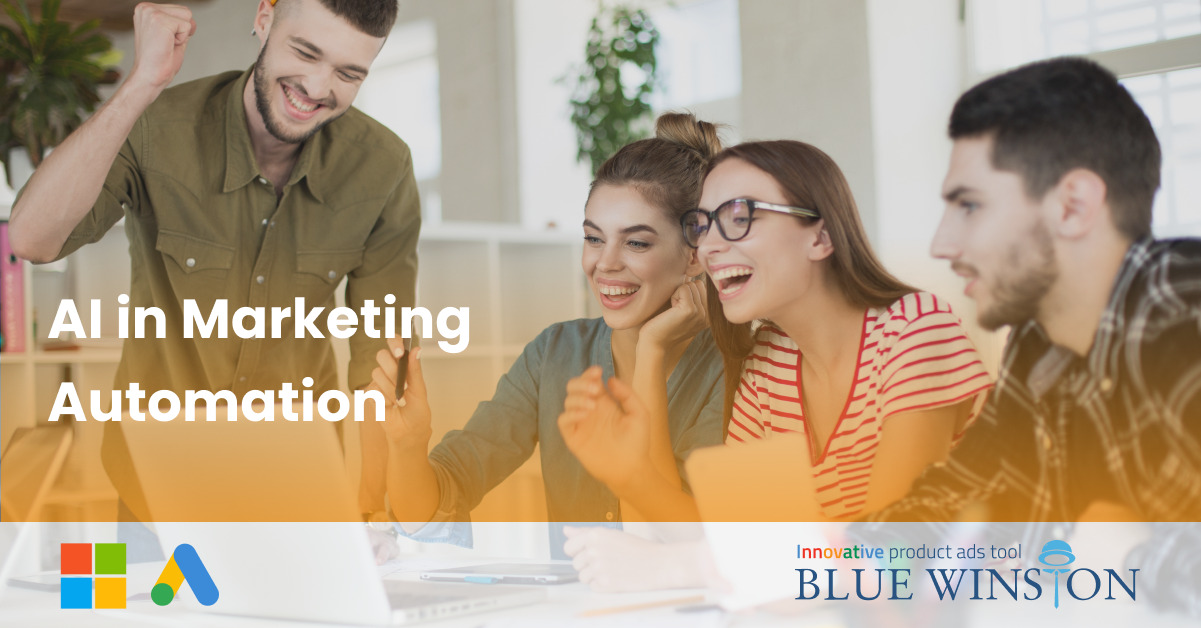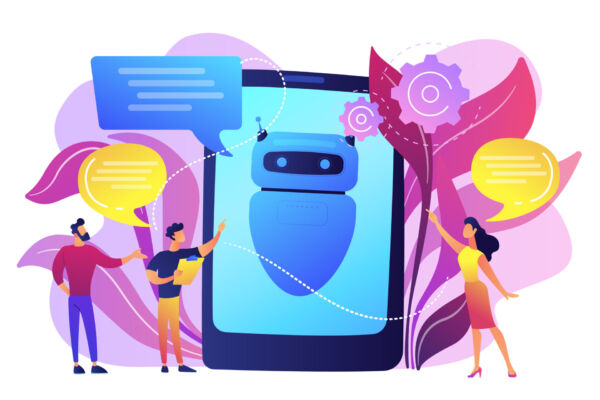AI is no longer just a trend—it’s part of daily life, transforming how we work and think. It’s used across industries and age groups, from automating tasks to planning trips or creating content. In marketing, AI powers tools like chatbots and real-time analytics, playing a vital role in improving performance.
Benefits of AI Marketing Automation
Artificial Intelligence is transforming marketing automation by enabling the development of advanced tools that improve efficiency, personalization, and the overall impact of advertising.
- Efficiency: AI automates repetitive tasks like email scheduling, bidding, and customer segmentation, saving time and reducing errors.
- Personalization: By analyzing user data and behavior, AI enables highly tailored campaigns, improving engagement and conversion rates.
- Lead Scoring: Predictive analytics help identify and prioritize high-quality leads, allowing sales teams to focus on the most promising prospects.
- Real-Time Data Analytics: AI processes large data sets instantly, enabling real-time decisions, spotting trends, and detecting anomalies that manual analysis might miss.
Essential AI Tools for Marketing Automation
AI’s integration into everyday work has brought many advantages, especially through the rise of diverse tools—both free and paid. But which ones are worth using? Let’s take a closer look.
Content Creation Tools
ChatGPT: A versatile AI chatbot that generates fast, high-quality content—from scripts to website layouts. Free and paid versions are available, with the paid plan offering more advanced features.
Jasper AI: Ideal for creating text for blogs, ads, emails, and social media. Similar in price to ChatGPT, but with Pro features tailored for larger teams or businesses.
Audience Segmentation Tools
Salesforce Einstein: A high-end AI tool for medium to large businesses, enhancing CRM with predictive insights, personalized recommendations, and automation.
FounderPal AI: Great for startups and small businesses, it helps define customer personas and refine targeting strategies. Offers both free and paid plans.
CRM Solutions
Zoho CRM is an AI-powered platform that automates sales, marketing, and customer support. It features AI insights, workflow automation, and multichannel communication. A free plan is available for up to three users, with paid plans starting at $14/user/month.
Microsoft Dynamics 365 combines CRM and ERP tools to optimize business operations across sales, marketing, finance, and service. Pricing depends on the modules, starting at $65/user/month for CRM and $180/user/month for ERP.
Chatbots in AI Marketing Automation
Chatbots are transforming customer interactions by improving user experience, collecting data, and supporting scalable growth in marketing automation.
Why Use Chatbots?
24/7 Support – chatbots provide instant, round-the-clock responses without breaks, leading to:
- Higher customer satisfaction through reduced wait times.
- Global coverage with multilingual and time zone flexibility.
- Consistent brand messaging across all conversations.
This makes chatbots especially valuable in e-commerce, SaaS, and service industries where quick support can drive conversions.
Data-Driven Insights – AI chatbots gather valuable real-time data from every interaction—tracking customer behavior, preferences, and feedback.
- Customer Profiling: Bots help segment users by interests, location, and purchase habits.
- Personalized Marketing: Insights from chats enable tailored campaigns and recommendations, boosting marketing effectiveness.
How AI Marketing Automation Boosts ROI
AI has significantly transformed the ad tech landscape, allowing companies like ours to develop smarter tools that enhance advertising performance and increase client ROI. With AI, we’ve improved existing features and created entirely new solutions tailored to campaign effectiveness.
1. Smarter Google & Microsoft Ad Campaigns
After over a decade of working with search and shopping ads, we noticed performance issues emerging. In response, we built:
- AI-Powered Bidding Tool: Automatically adjusts bids for keywords or products, boosting ad visibility.
- Product Segmentation for P.Max Ads: Using AI to group products by ROAS and margin, we generate supplemental feeds that allow clients to split campaigns and improve results.
These tools save time, reduce guesswork, and help scale campaigns more efficiently.
2. Drop in P.Max Performance YoY
Many clients face year-over-year drops in Performance Max results. One major cause is low-quality product data—titles and descriptions that lack relevance.
We developed an AI tool to rewrite product titles and descriptions, which led to:
- Better ad relevance and higher placement
- More personalized and searchable campaigns
- Enhanced product detail, improving customer experience
Integrating AI into Your Marketing Strategy
AI is no longer a distant idea—it’s a powerful tool reshaping how businesses market, offering improved efficiency, personalization, and performance.
Where to Use AI
Before adopting AI tools, assess your marketing goals to identify areas with the highest impact:
- Customer Segmentation: Analyze behavior to create dynamic audience groups.
- Content Personalization: Send tailored messages based on user preferences or behavior.
- Predictive Analytics: Forecast trends, lifetime value, and purchase behavior.
- Chatbots: Automate basic customer support tasks and speed up response times.
- Ad Targeting & Bidding: Adjust bids in real time based on audience data.
Choosing the Right Tools
Select tools that align with your needs:
- Ensure integration with your existing systems (CRM, CMS, etc.).
- Choose solutions that are scalable and user-friendly.
- Consider both cost and potential ROI.
Continuous Optimization
AI needs regular testing and refinement:
- Define KPIs and run A/B tests.
- Use AI’s feedback loops to learn and improve.
- Regularly review and adjust strategies.
Challenges to Consider
Data Privacy & Security AI depends on data, so it’s critical to comply with regulations, protect user data, and be transparent about data use.
Quality Control Automation must be monitored to avoid inaccurate outputs or generic messaging. Human oversight is essential to maintain brand consistency.
Customer Expectations AI can raise expectations for speed and personalization—but overuse can make experiences feel cold or impersonal. Balance automation with meaningful human interaction.
Conclusion
AI is revolutionizing marketing—automating tasks, improving targeting, and enhancing customer engagement. But success depends on choosing the right tools, ensuring data security, and maintaining the human element. Done right, AI can boost ROI and strengthen customer relationships in a digital-first world.
 Get Microsoft Ads setup, tools and coupon for
Get Microsoft Ads setup, tools and coupon for  free!
free! 







